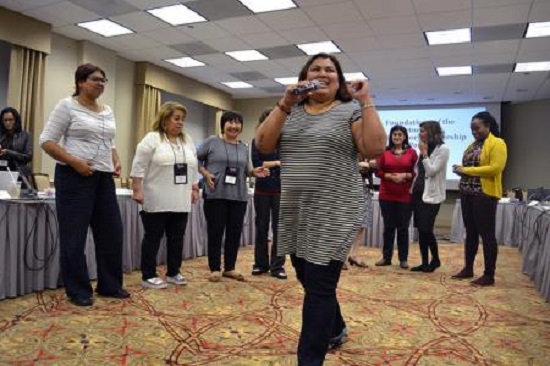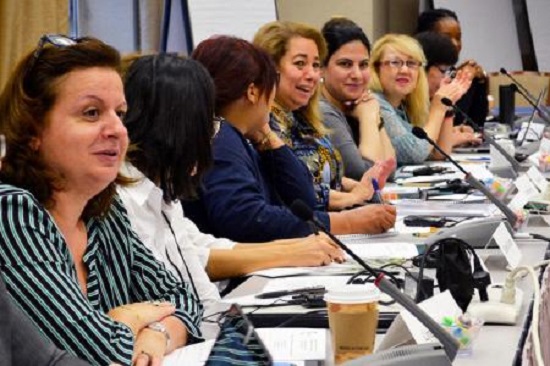
Women’s Learning Partnership hosted its 16th Transnational Partners Convening (TPC) in Bethesda, Maryland from October 1 through 4, 2016. The meeting brought together representatives from partner organizations in Brazil, Egypt, Indonesia, Jordan, Kazakhstan, Kyrgyzstan, Lebanon, Malaysia, Morocco, Mozambique, Nigeria, Pakistan, Senegal, Turkey, and Zimbabwe.
The annual TPC is an opportunity for members of the partnership to review organizational achievements from the previous year and collaborate on future initiatives. Board members offered insight into the state of women’s rights around the world, and representatives from partner organizations discussed the challenges they encountered in the course of their work. Attendees also shared successful advocacy strategies from their respective countries, provided input on WLP’s training materials, and contributed ideas for the partnership’s forthcoming programs and events.

Significant portions of the TPC were dedicated to the topic of WLP’s two newest endeavors: family law reform and the empowerment of refugee women. In many countries, acts of gender-based violence and discrimination are committed without legal repercussion because of gendered legislation that undermines women's rights. WLP’s family law reform initiative is developing case studies and a global advocacy campaign so that activists have tools to challenge the legality of these practices.
WLP’s refugee project is creating curriculum and workshops designed for women displaced by the conflict in Syria. The workshops will take place in refugee camps and communities, empowering women through leadership training and providing them with skills on how to navigate the local justice system. As a result, refugee women will be able to confidently participate in decision-making processes that affect themselves and their families.
The TPC agenda also included the presentation and testing of WLP’s new training manuals, Leading to a Culture of Democracy, Beyond Equality, and Leading to Compassion.
Going forward, members of Women’s Learning Partnership will apply the insights from this year’s TPC to their work in women’s rights promotion. "I have really enjoyed the TPC with its diverse and dynamic in-depth discussions," said Samah Helmy from WLP's global training team. "The presence of each and every one helped to make TPC a great success."
Related Content
Asmae Aboulfaraj Shares Her Inspiring Journey for Achieving Gender Justice in Morocco
WLP’s partner in Morocco, the Association Démocratique des Femmes du Maroc (ADFM), has been leading an intergenerational movement to reform Morocco’s Family Code, the Moudawana, since 1985. We sat down with ADFM board member Asmae Aboulfaraj, a young feminist activist dedicated to advocating for reforms in the parts of the Moudawana that fall short of the country's constitutional commitments to gender equality. In this interview, Asmae shares her vision for collaboration between activists and civil-society organizations in Morocco and what she thinks the next generation of leaders can do to advocate for a better future for both women and men.
Elevating Women's Voices in the Fight for Land Rights and Climate Justice: An Interview with Nzira Deus
Last week, governments, development partners, civil society, scholars, and private sector representatives convened at the World Bank Land Conference in Washington DC, to discuss research, critical issues, and policy related to the land sector. This year's theme, "Securing Land Tenure and Access for Climate Action," emphasized the often-overlooked role of land tenure in climate change adaptation and mitigation. Nzira Deus, Executive Director of WLP’s partner in Mozambique, spoke at the conference about how civil society organizations in Mozambique are bridging the gap between policy commitments and ground-level change, especially when addressing the barriers women face in accessing land rights.